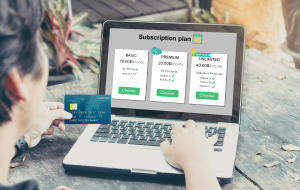What Is VAT?
VAT (value-added tax) is something we're all familiar with in the day to day purchasing of goods and services. As a customer, it means paying a little extra on top of the value of the item or service we are purchasing. If you own a business, however, the way you think about VAT will differ as the handling of VAT is a major factor in whether or not your company operates legally. The standard rate of VAT is 20%, and you must provide invoices to customers detailing the amount of VAT they are paying on their purchase. To calculate VAT at 20%, you multiply the price of the goods you are selling by 1.2.
VAT is a consumption tax that is applied to all goods and services that are bought and sold. From a business perspective, when you run a company, you charge VAT on the sale of the products you offer, as well as the hiring or loaning of goods, commissions, exchanges, and the selling of business assets, business items for personal use and staff sales. VAT is not a tax that is imposed upon businesses — it is paid by customers. Businesses are responsible for reporting VAT directly to HMRC.
If you have a business with an annual turnover of more than £85,000, you have to register for VAT and charge it on all of your goods and services. Being VAT registered also enables you to claim back VAT on any expenses that have been incurred by your business. The rate of VAT that you charge depends on the type of goods or services that your business offers. Some goods and services are exempt from VAT, such as fundraising (for charity), selling or renting out commercial property, finance and insurance services, stamps and training/education services.
VAT Responsibilities as a Business Owner
If you are registered for VAT as a company, you will be given a VAT number that is specific to your business, and you will have a certificate that declares that your company is VAT registered. The certificate will state when your first VAT return is due for submission and the date that you became required to register for VAT.
The VAT your business charges will be based on the value of the goods or services that you retail to customers. If you charge a customer without adding VAT, the price you charge them will be taken into account by HMRC, and they will make the price inclusive of VAT. You must submit a VAT return every three months to HMRC, stating the amount of VAT that you have charged and paid. If your customers have been overpaying VAT, the extra amounts you received must be paid back to HMRC. Likewise, if you have paid more VAT than you have charged your customers for services, you can claim back the difference from HMRC.
Claiming Back VAT
If you own a business, you can claim back VAT on expenses that you have paid to operate your company and keep it running. You can claim back VAT on things like business calls, stock, working tools, stationery, business vehicles, travel, fuel expenses, utility bills (if you run your business from home) and any other general maintenance expenses. You are not able to claim back VAT on anything intended for private or entertainment use or for items purchased outside of the UK. If your expenses are split (for instance, you purchase a computer that you will use for personal gaming but also business requirements), you can claim part of the VAT back.
Submitting a VAT Return
If you are registered for VAT, you will need to submit online returns to HMRC on a regular basis. To submit a return, you will need records detailing your total sales and VAT collected for a three-month period. You won't need to send over copies of specific invoices, but it is a good idea to have copies of them filed away for reference if required. HMRC may request copies of invoices if it has questions about your accounts.
You can use tax-digital compliant software to submit a VAT return. To use this type of software, you must have an annual turnover of £85,000. You can also submit a VAT return through the online account you create when you register through the GOV UK website.
The due date for your VAT return will depend on the date you registered your business for VAT and how you manage your accounts. The dates for submitting your returns should appear in your online account. If you have been given a VAT bill, you will have one month and seven days to pay it. You can do this via a bank transfer or credit/debit card, but some businesses set up a direct debit so that any VAT owed to HMRC can instantly be deducted and paid back. If you owe VAT, you must pay the amount back to HMRC within the allotted time or risk fines. If you have overpaid on VAT, HMRC will owe you this amount via a refund. Most refunds are paid back within 10 days of you submitting your VAT return.
Further information on various issues surrounding VAT can be found on the GOV UK website.
Need to register your business for VAT?
Register for VAT online
following our simple online step-by-step process, and we'll do the hard work for you.
Want to register your UK limited company today?
Download Free e-book – Roadmap to Business Success
Let Mint Formations Help You Start Your Business Journey.
Get access to our free roadmap to success to see if you’re ready to start your business journey



